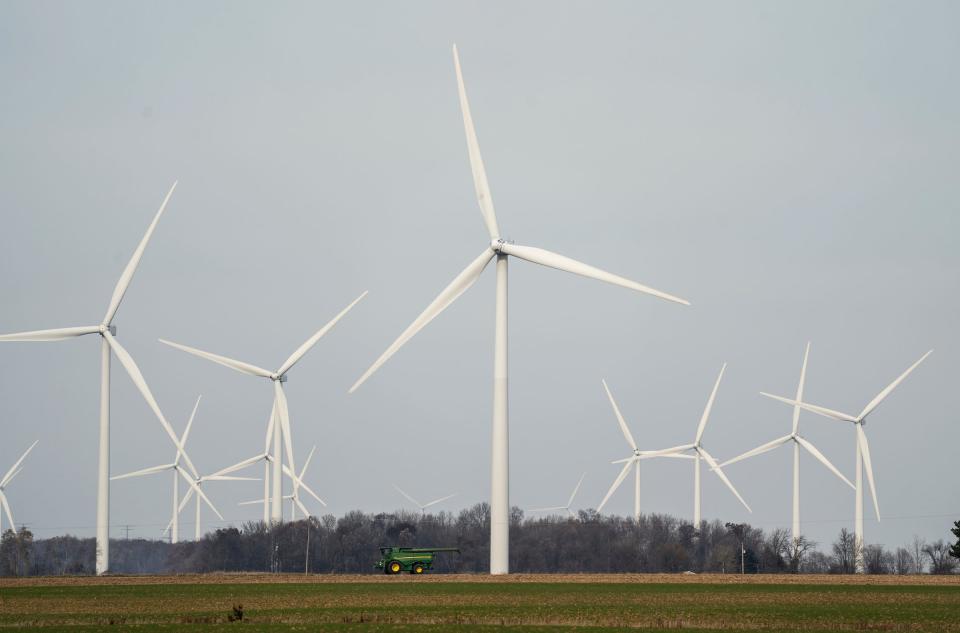Prevailing wage law expanded to wind, solar energy projects in Michigan
Michigan Gov. Gretchen Whitmer signed an expansion of the state's prevailing wage law on Tuesday, extending prevailing wage requirements to construction for solar and wind energy projects.
The state's prevailing wage law requires the pay and benefits offered to workers on a state-backed construction project to match or surpass the standard wages and benefits standard in a jurisdiction, which typically means union-level rates.
Senate Bill 571, introduced by state Sen. John Cherry, D-Flint, expands Michigan's prevailing wage law to cover construction projects of clean energy facilities, defined in the bill as solar, wind and energy storage plants. The legislation also requires contractors bidding on clean energy construction projects to register with the Department of Labor and Economic Opportunity. Finally, it also requires contractors to maintain and submit payroll and benefit information for workers to the relevant contracting agency.
Advocates for the plan say it will ensure better pay for workers in Michigan and help spur the state's transition to clean energy generation. Last year, Whitmer and Democrats in the Legislature adopted a new clean energy goal in Michigan, setting a timeline of having 100% of the state's energy coming from carbon emission-free sources by 2040. Wind and solar are considered two potential clean energy sources under that plan.

“This legislation isn’t just about fair compensation, it’s about safeguarding the skills and safety of our workforce,” Cherry said in a release issued by the governor's office Thursday. “This law will be instrumental in supporting our state’s transition to clean energy and it’ll ultimately save us more money in the long run."
More: US Rep. Rashida Tlaib holds up 'war criminal' sign during Israeli PM Netanyahu's address
More: Kamala Harris needs to change US policy on Gaza to win Michigan's uncommitted voters
SB 571 passed along party lines in both the House and Senate, with Republican lawmakers opposing the plan.
Opponents of the bill said prevailing wage raises the cost of projects and places burdens on nonunion laborers. Michael LaFaive, senior director of the Morey Fiscal Policy Initiative at the Mackinac Center for Public Policy, a Midland-based free market think tank, previously said the bill expands prevailing wage beyond state-backed projects.
"This goes beyond the conventional prevailing wage mandates by effectively mandating a higher minimum wage on a particular industry for projects that are not underwritten by the state," LaFaive said during a February Senate Labor Committee hearing on the bill.
Last year, Whitmer signed legislation reinstating Michigan's prevailing wage law for state-funded construction projects. For decades, prevailing wage had been in place in Michigan until Republicans in the Legislature repealed the law in 2018.
Editor's note: This article has been updated online to state the Michigan Legislature repealed the prevailing wage law in 2018.
Contact Arpan Lobo: [email protected]
This article originally appeared on Detroit Free Press: Michigan's prevailing wage law expanded to cover clean energy projects
Solve the daily Crossword

